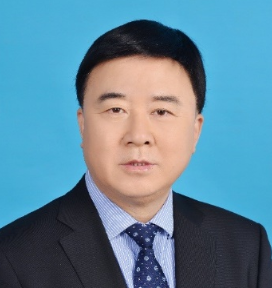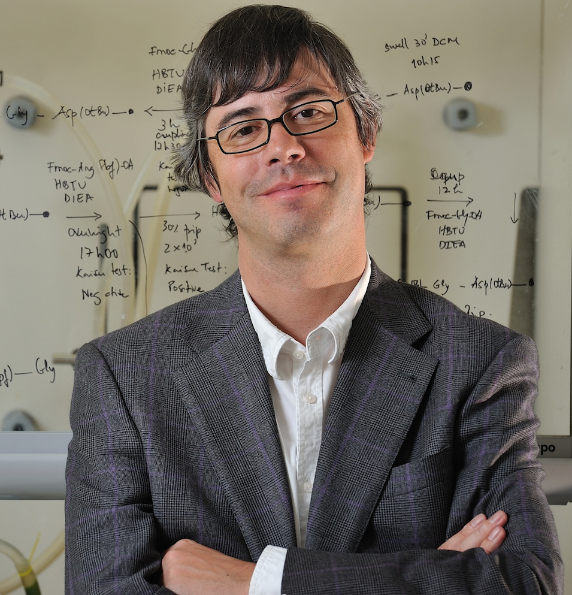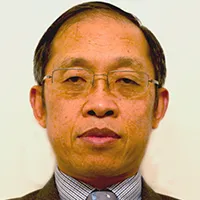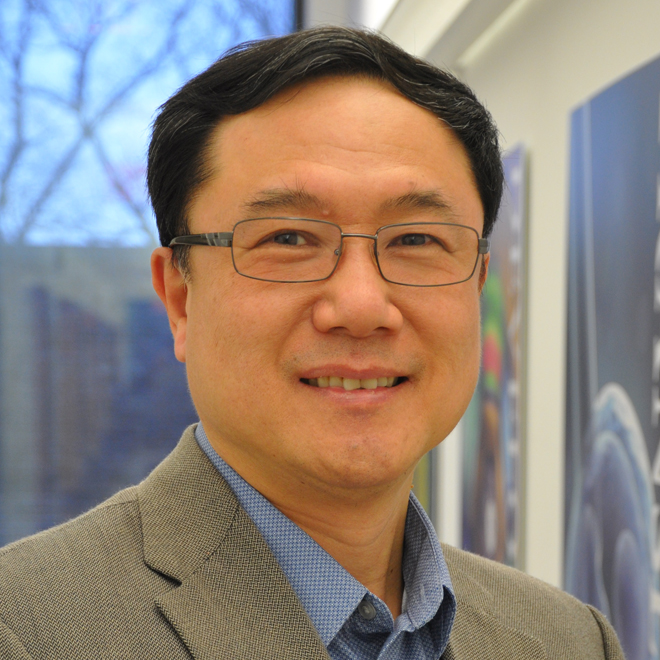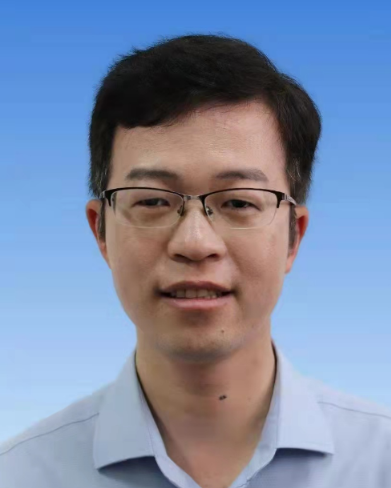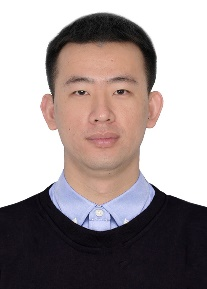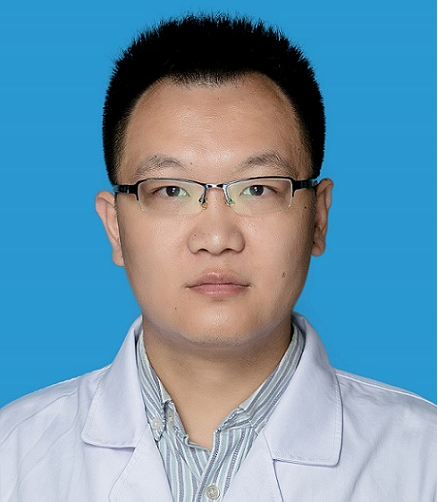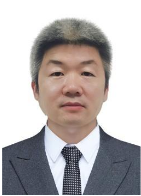
National Center for Liver Cancer, Shanghai, ChinaPathogenesis of hepatobiliary tumors; Molecular mechanism of inflammation to cancer transformation; Regulation of cell signal transduction networks; Tumor functional genomics and tumor metabolism; Research and development of early diagnosis markers for tumors

Institute of Translational Medicine, Shanghai University, Shanghai, ChinaBasic and clinical research on bone and joint degenerative diseases, Research, development and application of new biomaterials (cell derivatives, hydrogels, magnesium-based artificial bones, etc.), Development and transformation of bone/cartilaginous organoids

West China Hospital, Sichuan University, Chengdu, ChinaExtracellular matrix materials; Composite materials; Tissue regeneration and repair and product transformation; Research and application of adult stem cells; Research on tissue repair; Solid organ regeneration; Tissue engineering

Xiangya Hospital Movement System Research Center, Central South University, Changsha, ChinaAging and regeneration
Professor and Senior Researcher (Second-Level Research Fellow), Xiangya Hospital Movement System Injury Repair Research Center, Xiangya Hospital, Central South University; Deputy Director, National Clinical Research Center for Geriatric Disorders, Hunan Province
Director, Amy Medical (Háimì) Hunan Key Laboratory; Deputy Director, Ministry of Education Key Laboratory of Geriatric Joint Disease Research at Xiangya Hospital
Recipient of the National Science Fund for Distinguished Young Scholars and National Excellent Young Scientists Fund
Recognized as a National High Level Overseas Youth Expert and National Youth Post Talent, with provincial leadership roles including Vice Chair, Hunan Youth Science and Technology Association and Central South University Young Scholars Association
Recognized in Stanford/Elsevier Global Top 2% Scientists lists in 2021, 2023 and 2024
Awarded multiple prestigious scientific honors:
-
-
First Prize, Chinese Medical Association Basic Orthopedic Research Award
-
Shulan Medicine Young Scientist Award
-
First Class Prize, Hunan Provincial Natural Science Award
-
Young Scientist Award, American Orthopaedic Research Society
-

Department of Orthopedics, The Third Affiliated Hospital, Southern Medical University, Guangzhou, ChinaThe mechanism of bone and joint degeneration; Research on bone and cartilage tissue injury and repair
Dean, School of Basic Medical Sciences, Southern Medical University, China
Director, the Key Laboratory of Bone and Joint Degenerative Diseases of Guangdong Province, China
Professor, School of Basic Medical Sciences, Southern Medical University, China
Distinguished Professor of the Ministry of Education of China
National Science Fund for Distinguished Young Scholars

Department of Clinical Oncology, Queen Elizabeth Hospital, Hong Kong, ChinaGenomics; Proteomics; Drug repurposing; Bioinformatics; Next-generation sequencing; Cancer biomarker; Evidence-based medicine; Extracellular vesicles; MicroRNA; Molecular diagnostics; Non-coding RNAs; Nasopharyngeal carcinoma; Non-small cell lung cancer
Dr. William Cho is a biomedical scientist at the Department of Clinical Oncology, Queen Elizabeth Hospital in Hong Kong. With a strong background in cancer biomarker discovery and translational research, Dr. Cho has published extensively in peer-reviewed journals. His research interests include genomics, proteomics, and liquid biopsy in oncology. He actively serves on editorial boards and is a frequent reviewer for international scientific journals.

Department of Chemistry &Waterloo Institute for Nanotechnology, University of Waterloo, 200 University Ave West, Waterloo, ON, N2L 3G1 Canada, Centre for Eye and Vision Research Limited, Hong KongSuperabsorbent hydrogels; Fluorescence in hydrogels; Nanomaterials in hydrogels; Hydrogels in the biomedical fields

Model Systems Core at the IRNIE Translational Polycystic Kidney Disease (PKD) Center, Rochester, USAPolycystin (mutated in ADPKD), BBS proteins (mutated in Bardet-Biedl syndrome), ARL13B (mutated in Joubert syndrome), Mks (mutated in Meckel-Gruber syndrome), NPHPs (mutated in nephropathy medium mutation)

School of Pharmacy, Faculty of Medicine and Health, University of Sydney, Sydney, AustraliaDrug delivery; Tissue engineering; Microscale tech; 3D printing
Lifeng Kang is an Associate Professor at the School of Pharmacy, Faculty of Medicine and Health, University of Sydney. His laboratory is focused on microscale technologies and 3D printing for drug delivery and regenerative medicine. He has published 3 books, 5 book chapters, 86 peer-reviewed journal articles(65 as the first or corresponding author), 91 abstracts and filed 10 patent applications(5 granted and 3 licensed). His work has been published in leading journals such as Nature Nanotechnology, Advanced Drug Delivery Review, Journal of Controlled release, Advanced Functional Materials, Biofabrication, Coordination Chemistry Reviews.His publications received 4626 citations, with an H-index of 40 (Google Scholar), among global top 2% scientists (Stanford University, 2022-2024).

Department of Biosystems Engineering, Kangwon National University, Chuncheon, South KoreaBioengineering; Bioprinting; Biophysics; Immunomodulation; Tissue engineering
Prof. Lim completed his undergraduate degrees in Biosystems Engineering at Konkuk University and an MA in Biomechatronics from Sungkyunkwan University. Ki-Taek continued his doctoral studies in Biosystems Engineering at Seoul National University under the joint supervision of Prof. Jong Hoon Chung. He held a postdoctoral appointment at Dental Research Institute, Seoul National University where he developed high-throughput automated culture platforms via a bioreactor process engineering for enhanced tissue regeneration from stem cells in Prof. Pill-Hoon Choung’s laboratory, plus, he developed nanoparticles as tools to control stem cells in Prof. Jin-Woo Kim’s Bio/Nano-Technology Group, Institute for Nanoscience and Engineering, University of Arkansas, Fayetteville. Ki-Taek joined KNU as an Assistant Professor of Biosystems Engineering in Feb. 2015, with getting along with an Adjunct Professor and a Visiting Scholar at SNU (Seoul National University).

Division of Molecular and Medical Genetics, Center for Gene and Cell Therapy, The Institute of Medical Science, The University of Tokyo, Tokyo, JapanBiomarker; Deep learning; Disease mouse model; Emotional Stress; Exosome; Macrophage; miRNAs; Muscular dystrophy; QSAR; Stroke

Laboratory for Bone and Joint Disease, Division of Sports Medicine and Adult Reconstructive Surgery, Department of Orthopedic Surgery, Nanjing Drum Tower Hospital, Affiliated Hospital of Medical School, State Key Laboratory of Pharmaceutical Biotechnology, Nanjing University, Nanjing, ChinaKnee joint development and regeneration
Chief Physician, Department of Neurology at Nanjing Drum Tower Hospital
Doctoral Supervisor, Nanjing University Medical School
Key Investigator for several National Natural Science Foundation of China grants
Editorial Board Member for Chinese Journal of Neurology
Leader of Research Group on Neurodegeneration, Nanjing Drum Tower Hospital
Active member of Chinese Neurological Association and Chinese Society of Neurodegenerative Diseases
Notable Achievements and Honors:
Awarded National Science Fund for Distinguished Young Scholars
Chief Scientist, National Key R&D Program on stroke prevention and treatment
First-prize awardee for Research on Neuroinflammation in Parkinson’s Disease
Led multi-center studies on genetic biomarkers for neurodegenerative diseases in collaboration with international research groups
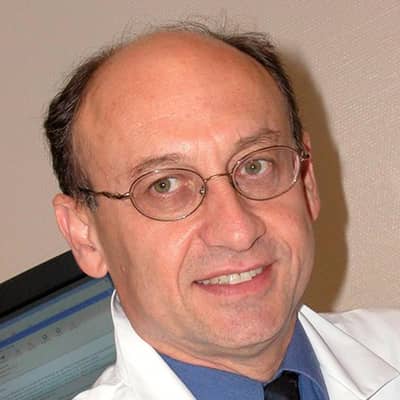
Université Paris-Saclay, Inserm, UMRS 1310, 7 rue Guy Môquet, 94800 Villejuif, FranceInduced pluripotent stem cells (iPSCs); stem cell biology; hematologic malignancies; chronic myeloid leukemia (CML); leukemia disease modeling; genomic instability; regenerative medicine; translational cell therapy.
Prof. A.G Turhan, MD, PhD is a clinical Hematologist/Oncologist and scientist and a leukemia/hematopoietic stem cell/iPSC expert in Paris Saclay University and Head of Hematology Department at APHP-Paris Saclay Bicetre&Paul Brousse Hospitals. Prof Turhan is pursuing his research at Inserm U1310 as a Director. His research Unit has a pioneering expertise in induced pluripotent stem cell (iPSC) technology . The goal of his team is to develop tools based on ESC/ iPSC technologies for both modeling cancer and leukemia and to develop clinically applicable iPSC-derived therapies for cancer, from preclinical phase to Phase I/II.

Suzhou Institute of Biomedical Engineering and Technology, Chinese Academy of Sciences, Suzhou, ChinaNew inorganic bioactive materials for complex tissue regeneration and repair and tissue engineering; Multifunctional bioactive materials for major disease treatment - tissue/organ regeneration and repair; Digital intelligent manufacturing of biomaterials and bio-3D printing for tissue/organ regeneration and reconstruction

School of Medicine and Dentistry, Griffith University, Brisbane, AustraliaRegenerative medicine; Tissue engineering; Biomaterials; Stem cells; Bone and mineralized tissues; Osteoimmunology; Implant and Immune reaction; Cell-based therapy
Professor Yin Xiao, a dental specialist (BDSc 1986 and MDSc 1991), started his research career in 2000 (Ph.D. from the University of Queensland). He has been appointed as a tenured Distinguished Professor in Dentistry and Medicine at Griffith University since 2022. Before joining Griffith University, he was a full professor at Queensland University of Technology (QUT) in 2012 and an associate professor from 2005 at QUT. He is the Founder, and the Director of the Australia-China Centre for Tissue Engineering and Regenerative Medicine (ACCTERM), established in 2013, and the Joint Research Centre of functional biomaterials for tissue and organ replacement. His work has predominantly focused on bone, biomaterials, stem cells, dentistry, osteoarthritis, and tissue engineering. He initiated the concept of osteoimmunology in bone biomaterial development and introduced the "Materiobiology" in M. Phil's training courses at QUT. He has authored more than 340 journal papers, three books, and 23 book chapters. His H index is 73, and his work has been cited more than 20,000 times. He was named one of the top 250 researchers in Australia and the field leader in Biomedical Technology in 2019 and 2021 by Australian Research Magazine.

Fujian Provincial Key Laboratory of Neurodegenerative Disease and Aging Research, Institute of Neuroscience, School of Medicine, Xiamen University, ChinaBiology of neuronal metabolism; Neuronal cell cycle regulation
Distinguished Professor, Institute of Neuroscience, School of Medicine, Xiamen University; Deputy Dean of the Medical School
Doctoral Supervisor (PhD Mentor), Xiamen University, training students in neurology and neuroscience
Specialist in Alzheimer’s, depression, autism, postoperative cognitive dysfunction, and molecular mechanisms involving neuronal cell cycle regulation (Cdk5/p35) and microglial metabolism
Principal Investigator, Fujian Provincial Key Laboratory of Neurodegenerative Disease and Aging Research, leading projects on aging and neurodegeneration
National Science Fund for Distinguished Young Scholars (2019)
National Outstanding Youth Science Foundation Award (2016)
Recipient of New Century Excellent Talents by the Ministry of Education; Fujian Province Distinguished Young Scientist Fund (2014)
Leader of major national grants, including:
-
-
National Key R&D Program (e.g., oxidative aging, neuron metabolism)
-
Multiple National Natural Science Foundation of China (NSFC) projects, including Youth and Outstanding Youth grants
-
Fujian Province Innovation and Distinguished Young Talent Plans
-

Westlake BioBank, Westlake University, Hangzhou, ChinaAging-related musculoskeletal system traits; Genetic factors and environmental factors for osteoporosis and fractures in the elderly; Sarcopenia; Population genetics research: Chinese population haplotype research; Chinese population genetic structure; Chinese Han surname research; Intestinal microorganisms and complex diseases
The Hong Kong Polytechnic University & Qilu Hospital of Shandong UniversityOrthopedics, Organoid Research, nucleus pulposus progenitor cell rejuvenation, intervertebral disc degeneration, cellular senescence reversal, regenerative medicine, spinal health, stem cell modulation


